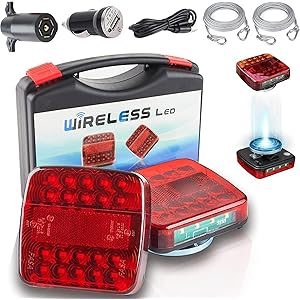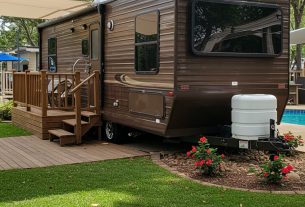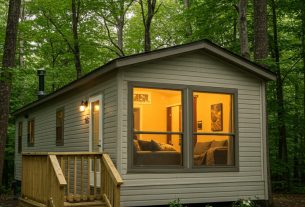As I’ve navigated the world of homeownership, I’ve often found myself wondering about the distinctions between different housing options available today. Two terms that frequently come up are “modular homes” and “trailer houses.” While they might seem similar at a glance, the differences between the two are significant and worth exploring. In this comprehensive guide, I aim to clarify these differences and provide insights that may help you in your home-buying journey.
Understanding Modular Homes
Modular homes are often misunderstood, primarily due to the terminology and the stigma surrounding prefabricated buildings. Let’s break down what modular homes are and how they stand apart from other types of housing.
What Exactly is a Modular Home?
A modular home is a type of prefabricated housing that is constructed in sections (or modules) in a factory setting. These homes are then transported to the building site and assembled on a permanent foundation. Here are some key characteristics of modular homes:
- Built to the same local building codes as traditional homes.
- Can be customized to suit personal tastes and needs.
- Constructed in a controlled environment, minimizing weather-related delays.
- Typically more energy-efficient due to modern building techniques.
Benefits of Modular Homes
Choosing a modular home comes with several benefits that can appeal to a diverse range of homeowners:
- Speed of Construction: Building a modular home can take significantly less time than traditional homes.
- Cost-Effectiveness: Modular homes can be more affordable due to reduced labor and material costs.
- Quality Control: Factory construction allows for better quality control, resulting in fewer defects.
- Customization: Owners can often choose from a variety of layouts, finishes, and features.
Exploring Trailer Houses
On the other side of the spectrum, we have trailer houses, which are often referred to as mobile homes. These are structures designed for mobility and are constructed in a way that allows them to be relocated easily.
What is a Trailer House?
A trailer house, or mobile home, is a prefabricated home that is built on a trailer chassis. This design allows the home to be transported from one location to another. Here’s what sets trailer houses apart:
- Typically built before 1976, when the HUD code was established (after which they are termed manufactured homes).
- Often less expensive than modular homes but may have lower resale value.
- Generally designed for temporary living situations or mobile lifestyles.
- Can be more susceptible to weather damage if not properly maintained.
Benefits of Trailer Houses
Despite some of the negative perceptions surrounding trailer houses, they do offer certain advantages:
- Affordability: Trailer houses can be significantly cheaper than traditional homes, providing an option for budget-conscious buyers.
- Mobility: Ideal for those who prefer a nomadic lifestyle or who want to relocate easily.
- Community Living: Many trailer parks foster a sense of community, often providing amenities and social opportunities.
Key Differences Between Modular Homes and Trailer Houses
Having understood what modular homes and trailer houses are, let’s dive into the key differences between them:
Construction Standards
One of the most significant differences lies in the construction standards:
- Modular Homes: Built to local building codes, ensuring safety and durability.
- Trailer Houses: Governed by federal HUD standards (for manufactured homes) and may not meet local building codes.
Customization Options
When it comes to customization, modular homes have an edge:
- Modular Homes: Offer a wide range of customization options in terms of design and layout.
- Trailer Houses: Limited customization options; often come in predetermined layouts.
Value and Resale Potential
The resale potential can vary significantly:
- Modular Homes: Tend to maintain their value and can appreciate over time.
- Trailer Houses: Often depreciate in value, similar to vehicles.
Energy Efficiency
Energy efficiency is another consideration:
- Modular Homes: Generally built with better insulation and energy-efficient materials.
- Trailer Houses: May lack modern energy-efficient features unless retrofitted.
Real-Life Scenarios: Case Studies
To illustrate the differences between modular homes and trailer houses, I want to share a couple of real-life scenarios that highlight their unique characteristics.
Case Study 1: The Smith Family
The Smith family was looking for a cost-effective way to secure their first home. After researching both options, they decided on a modular home. They appreciated the customization options available, allowing them to create a space that reflected their personal style. The family moved in within six months and found that their home’s energy efficiency significantly reduced their utility bills.
Case Study 2: The Johnsons
The Johnsons, on the other hand, opted for a trailer house due to their transient lifestyle. They enjoyed the mobility it offered, allowing them to travel across the country while still having a comfortable place to call home. While they faced challenges in terms of maintenance and value depreciation, the freedom of movement was worth it for them.
Statistics to Consider
Several statistics highlight the growing trend and acceptance of modular homes and trailer houses:
- According to the U.S. Census Bureau, the number of manufactured homes has increased by over 8% in the last decade.
- Modular homes can be built up to 50% faster than traditional homes, according to industry reports.
- Energy-efficient modular homes can reduce energy consumption by 30% compared to standard homes.
Frequently Asked Questions (FAQ)
1. Are modular homes cheaper than traditional homes?
Yes, modular homes can be less expensive than traditional homes due to lower construction costs and faster build times.
2. Can I move a modular home?
While modular homes are designed to be permanent structures, they can be disassembled and moved, but this process can be complex and costly.
3. What is the lifespan of a trailer house?
With proper maintenance, trailer houses can last 30 years or more, but many may not retain their value over time.
4. Is financing available for modular homes?
Yes, many lenders offer financing options for modular homes, and they can qualify for traditional mortgages.
Conclusion
In summary, the distinction between modular homes and trailer houses is significant. Modular homes offer durability, customization, and higher resale values, making them an attractive option for many buyers. Conversely, trailer houses provide affordability and mobility, appealing to those who prioritize a transient lifestyle. Understanding these differences will empower you to make an informed decision about which housing option is best for you.
If you found this article insightful, I encourage you to sign up for our newsletter for more tips and discussions on housing options. Please share this with friends and on social media to spread the knowledge!
Wireless Trailer Lights Magnetic, upgrade Rechargeable Wireless Trailer Tow Lights LED Kit, IP65 Waterproof, 10-Hour Battery Life, 100 FT Signal Synchronization for Towing Truck Camper RV Boat
$53.99 (as of November 15, 2025 07:52 GMT -03:00 - More infoProduct prices and availability are accurate as of the date/time indicated and are subject to change. Any price and availability information displayed on [relevant Amazon Site(s), as applicable] at the time of purchase will apply to the purchase of this product.)
Sign up for our newsletter and stay up to date with exclusive news
that can transform your routine!





